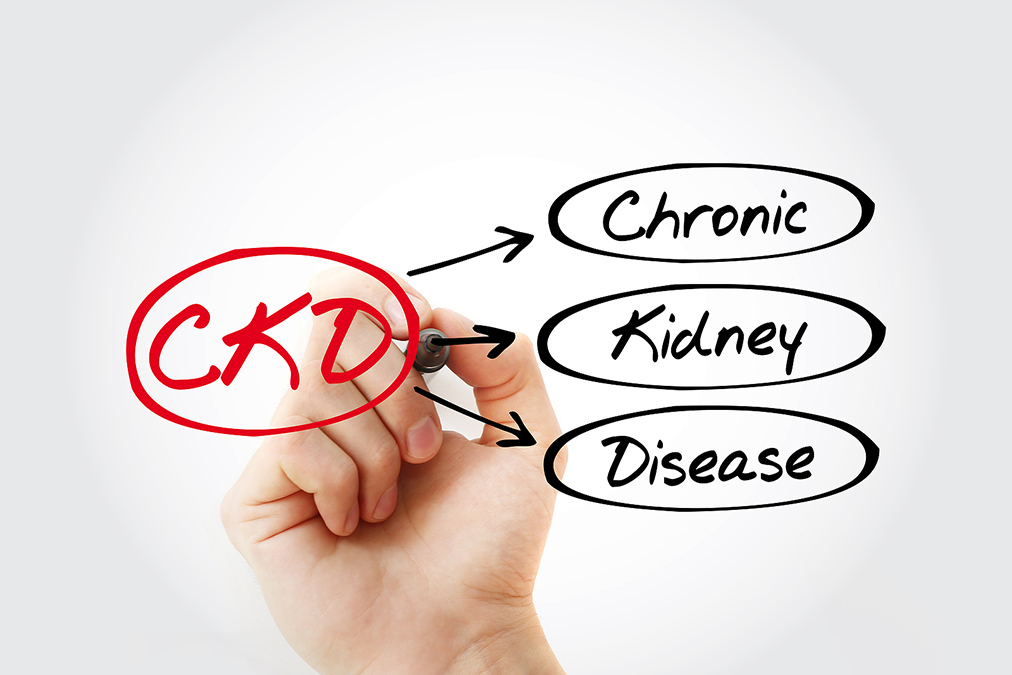 Chronic kidney disease (CKD) is not just a problem in the sense that you might be on dialysis or might be forced to eat only certain types of food.
Chronic kidney disease (CKD) is not just a problem in the sense that you might be on dialysis or might be forced to eat only certain types of food.
A recent study in the Journal of Clinical Practice reveals different effects that happen long before the end stages of CKD.
To conduct their investigation, the researchers recruited 150 chronic kidney disease sufferers from a teaching hospital in northwestern Nigeria: 77 men and 73 women. They then matched the subjects according to demographic characteristics with 150 healthy people from the general population. The subjects were 53 years old on average.
The researchers gave their subjects the Kidney Disease Quality of Life survey together with other questionnaires to collect information regarding the subject’s demographic, social, and economic characteristics, among others.
They also measured the subject’s blood pressure, creatinine levels, estimated glomerular filtration rate (eGFR), kidney size and composition, and so on.
They used the biological information they collected to divide the subjects into five groups, ranging from least to most severe chronic kidney disease.
The researchers reached two conclusions.
1. Chronic kidney disease sufferers had worse quality of life scores than non-sufferers had.
2. Quality of life scores deteriorated along with the severity of the disease.
This was true for all domains of the quality of life questionnaire, namely, general health, the burden of kidney disease, symptoms and problems, and the effects of kidney disease.
General health includes questions such as “How does your health compare with one year ago?”, ”How much does your health limit activities like vigorous sport, pushing vacuum cleaners, climbing stairs, kneeling, walking, etc.?”, ”Have you cut down the amount of time you spend on work or other activities?”, and ”How much has your health interfered with normal social activities?”
The burden of kidney disease domain included questions such as “How much do you isolate yourself from people around you?”, “How slowly do you react to things going on?”, and ”How often do you act irritably?”
The symptoms/problems domain included questions such as ”How often do you struggle to concentrate?”, “How often do you have sore muscles, chest pain, cramps, shortness of breath, dizziness, faintness, lack of appetite, and so on?”, and “Does it interfere with fluid intake, diet, working around the house, travel, sex, appearance, etc.?”
The effects of kidney disease domain included questions such as “Do you spend time with friends and family and you have their support?”, “Does your health stop you from working at a paying job?”, and “How much support do you receive from medical staff?”
From the above, it is clear that CKD leaves almost no aspect of the quality of life of chronic kidney disease sufferers untouched.
And what makes CKD so devastating is that it begins long before the people reach the most severe stages of this disease.

 Overcoming IBD
Overcoming IBD Multiple Sclerosis
Multiple Sclerosis Banishing Bronchitis
Banishing Bronchitis Gum Disease Gone
Gum Disease Gone Overcoming Onychomycosis
Overcoming Onychomycosis Neuropathy No More
Neuropathy No More The Prostate Protocol
The Prostate Protocol Brain Booster
Brain Booster
 Ironbound
Ironbound
 Solution for Shingles
Solution for Shingles
 The Bone Density Solution
The Bone Density Solution
 The Ultimate Healing Protocol
The Ultimate Healing Protocol
 The Parkinson's Protocol
The Parkinson's Protocol
 The Chronic Kidney Disease Solution
The Chronic Kidney Disease Solution
 Overthrowing Anxiety
Overthrowing Anxiety The Fatty Liver Solution
The Fatty Liver Solution The Hypothyroidism Solution
The Hypothyroidism Solution
 The End of Gout
The End of Gout The Blood Pressure Program
The Blood Pressure Program
 The Oxigized Cholesterol Strategy
The Oxigized Cholesterol Strategy
 Stop Snoring And Sleep Apnea Program
Stop Snoring And Sleep Apnea Program
 The Arthritis Strategy
The Arthritis Strategy The Vertigo & Dizziness Program
The Vertigo & Dizziness Program The 3-Step Diabetes Strategy
The 3-Step Diabetes Strategy Hemorrhoids Healing Protocol
Hemorrhoids Healing Protocol The Erectile Dysfunction Master
The Erectile Dysfunction Master Weight Loss Breeze
Weight Loss Breeze The IBS Program
The IBS Program The Insomnia Program
The Insomnia Program The Migraine and Headache Program
The Migraine and Headache Program The Neck Pain Solution
The Neck Pain Solution The Menopause Solution
The Menopause Solution The Ejaculation Master
The Ejaculation Master The TMJ Solution
The TMJ Solution The Acid Reflux Solution
The Acid Reflux Solution The Fibromyalgia Solution
The Fibromyalgia Solution The Psoriasis Strategy
The Psoriasis Strategy